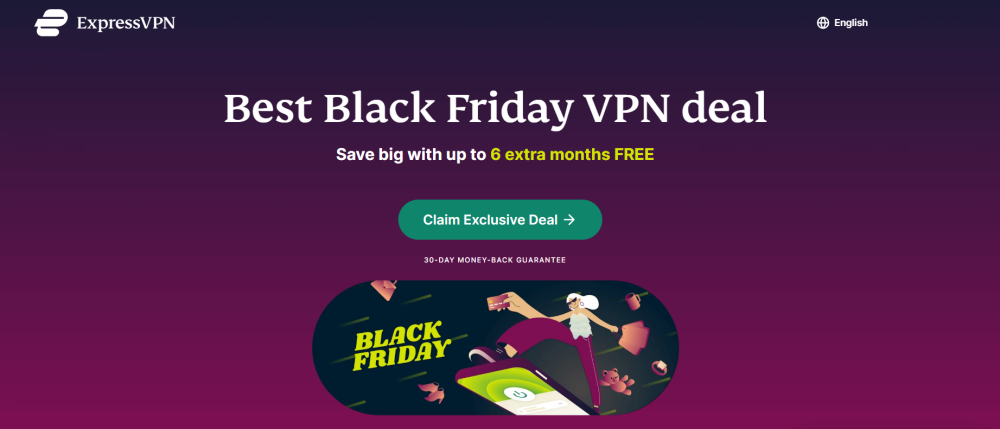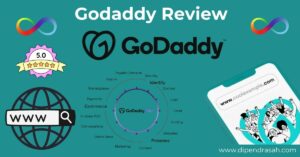VPNs, or Virtual Private Networks, are like an invisibility cloak for your internet traffic. They work by creating a secure and encrypted connection over a less secure network, like the internet. This means that when you’re surfing online, your data is hidden from prying eyes, whether it’s hackers, your internet service provider, or even the government.

So, why the fuss about VPNs, especially in 2024? Well, the digital landscape is shifting with new threats emerging daily alongside evolving privacy concerns. It’s important to distinguish between free and paid VPN services. Free options might be tempting, but they often come with limitations that aren’t great. Think bandwidth throttling, limited server options, and, worst of all, data selling. Paid services usually offer better security, faster speeds, and a richer selection of server locations.
We’re on the cusp of some exciting trends in VPN technology for 2024. Expect advancements like improved encryption protocols, wider adoption of mesh VPN networks, and integration with smart devices. The tech’s getting smarter and so should we, ensuring our online habits are safeguarded effectively.
Whether you’re new to the VPN game or an old hand, knowing what a VPN can do—besides just hiding your IP—is key. It’s about securing your digital identity and ensuring peace of mind whenever you go online. Now that you’re equipped with groundwork knowledge, the journey to find the perfect VPN service will be a lot smoother.
Why a VPN is Essential in Today’s Digital Landscape
In the rapidly shifting digital world, a VPN isn’t just useful; it’s a necessity for anyone who spends time online. Let’s break down why having a VPN is more vital than ever.
First up is online privacy. Every click and keystroke can be tracked and stored, often without your explicit consent. A VPN keeps your data out of reach, shoving would-be snoopers out of the way. It shields your online actions, so you’re not an open book on the web.
Then there’s the issue of geographical restrictions. We’ve all faced that annoying ‘This content is not available in your location’ message. Well, a VPN can sidestep these blocks. It gives you access to websites and streaming content from anywhere in the world by masking your location.
Another big win? VPNs are key for remote work. They allow secure access to company networks, which is a game-changer for remote employees. Plus, in the era of virtual meetings, a VPN ensures that sensitive business matters don’t fall into the wrong hands.
Let’s not forget gamers. VPNs can offer lower pings and stave off throttling, giving you smoother gameplay. Plus, they can help in fighting bandwidth restrictions imposed by ISPs during peak gaming hours.
In this age of constant connectivity, securing your internet activity isn’t just sensible; it’s essential. A VPN provides that layer of security while offering accessibility and confidentiality. You’re opting for freedom and peace of mind whenever you plug into the vastness of the internet.
Try it Today : ExpressVPN.com
Key Features to Look For in a VPN Service
When you’re on the hunt for a VPN service, it’s crucial to check under the hood and see what makes it tick. With countless options available, knowing what features really count can save you both time and frustration.
First on the checklist is encryption standards. You want top-notch encryption, like AES-256, which is pretty much the gold standard. It ensures your online activities remain under wraps, where they belong. Fun fact: this level of encryption is the same many governments use to protect classified information.
Another important feature is the range and number of servers. A greater server range generally means better speeds and more options to bypass geo-restrictions. Look for VPNs with a diverse array of server locations across the globe—this way, no geographical barrier can hold you back.
Speaking of speed, it’s vital to opt for a VPN that doesn’t slow you down. Test out the performance by looking at independent speed tests and reviews. Nobody wants a buffering icon as their travel companion on the information highway.
But let’s not overlook, protocols like OpenVPN or WireGuard strike a good balance between speed and security, so their presence in your selected VPN is a bonus. They’re the gatekeepers ensuring your information remains shielded without sacrificing too much on speed.
It’s also worth checking for additional features that fit your needs. Some VPNs offer split tunneling, which lets you route only part of your traffic through the VPN, leaving the rest directly accessible—handy for accessing local resources while maintaining privacy for sensitive data.
Look out for goodies like kill switches and DNS leak protection too. They’re small features, yet play a big role in making sure your connection doesn’t sneakily reveal your info if the VPN server drops.
Ultimately, choosing a VPN boils down to balancing these features with your specific needs—whether that’s blazing speed for streaming or ironclad security for sensitive transactions. Take the time to find a service that locks in that sweet spot, offering both protection and performance before you hit that ‘subscribe’ button.
Evaluating VPN Service Providers: What to Consider
Picking the right VPN provider is like picking a solid partner—you need to trust them. Let’s break down the key considerations that should shape your decision.
Data privacy policies take center stage. A reliable VPN should have a crystal-clear privacy policy, meaning no shady clauses that let them sell your data to third parties. The best VPNs have a strict no-logs policy, which means they don’t keep records of your online escapades.
User reviews and ratings are pure gold when assessing a VPN’s reputation. They offer insights beyond the marketing fluff. Dig into forums and tech websites for unfiltered opinions. Real users will tell you how the VPN performs under stress and if their customer support is actually useful.
Check if the VPN offers a trial period or a money-back guarantee. It’s like test-driving a car—you get to experience the service without dropping your cash first. This is your chance to assess its performance, user interface, and feature set firsthand.
Customer support can be a make-or-break factor. Even the best tech can falter and when that happens, you want a provider that will have your back pronto. Look for providers offering round-the-clock support, maybe even a live chat option for instant help.
On the technical side, it’s wise to consider any extra features that might come in handy. Think double VPN features for added anonymity or browser extensions for easy use on web browsers. The more tailored a service feels to your needs, the better.
It’s all about aligning the VPN service’s strengths with your needs—whether that’s privacy, speed, or versatile usage. Take the time to vet each provider thoroughly so you end up with a VPN that delivers without unexpected surprises.
Try it Today : ExpressVPN.com
Top VPN Services for 2024: Our Expert Recommendations
Now that you’re equipped with what to look for, you’re probably itching to see who makes the cut for top VPN providers in 2024. Here’s a rundown of the top contenders and what makes them shine.
First up, we’ve got ExpressVPN. Known for its blazing-fast speeds and robust security measures, it’s often highlighted for features like 24/7 customer support and a vast server network. Oh, and did I mention it also works great with streaming services?
NordVPN deserves a spot in the lineup too. With its strong encryption and unique double VPN feature that further safeguards your data, it’s a powerhouse for privacy enthusiasts. Throw in a reliable no-logs policy and the performance improves even more.
Surfshark, meanwhile, gets praised for affordability without cutting corners on quality. It’s one of the very few that offer unlimited simultaneous connections. It’s a solid choice if you’re juggling multiple devices at once or sharing with family.
CyberGhost provides ease of use combined with a generous offering of servers, making it ideal for beginners and seasoned users alike. Their dedicated streaming servers make accessing content from around the globe a breeze.
Let’s not skip over Private Internet Access. PIA is renowned for its commitment to privacy and transparent open-source software. It’s more than just a VPN, acting as a reliable person to shore up your online defenses.
Each of these providers has its unique strengths, from user-friendliness and affordability to strong privacy and extensive server options. Weigh these attributes according to what matters most—be it uninterrupted streaming, hardcore privacy, or large-scale multitasking setups.
With each of these recommendations, you’re not just picking a name out of a hat—you’re making an informed choice supported by expert analysis and user feedback alike.
How to Use a VPN: A Step-by-Step Guide
Setting up a VPN can seem like a labyrinth, but it’s more akin to following a cooking recipe—just take it one step at a time. Installing a VPN starts with choosing your preferred provider, downloading the app, and running the installer.
Once the software’s up and running, you’ll be prompted to log in with your account details. If you’ve got a good memory, you’ll breeze through this—or just keep those details somewhere safe yet accessible.
Once inside, you’ll find a dashboard with oodles of options. Don’t get cold feet. Start by connecting to a server. Choose one based on what you’re aiming for. For accessing content from a specific region, pick a server there. If you’re going for speed, some VPNs automatically connect you to an optimal server.
Customizing settings might seem like rocket science, but it’s straightforward. Check the settings menu for options like the protocol choice or enabling the kill switch. These ensure that if your connection drops, your data doesn’t accidentally spill out into the open web.
If you run into hiccups, VPNs often offer guides or FAQs to guide you through. Common issues like connection drops or sluggish speeds are usually easy fixes. Sometimes just choosing a different server can solve a lot.
Remember, when in doubt, support is your friend. Reach out to the VPN’s customer service for personalized help. Those reps might just save your day—and your data.
Whether you’re dodging hackers or catching a streaming service in another region, using a VPN is about adapting it to fit seamlessly into your online life. Make the most of the flexibility these tools provide, and soon enough, connecting through a VPN will become second nature.
Try it Today : ExpressVPN.com
The SEO Perspective: How VPNs Impact Your Online Activities
VPNs and SEO might seem like strange bedfellows, but they do share some common ground, especially when it comes to optimizing online strategies. Knowing how a VPN interacts with your SEO activities can save a lot of headaches later.
First, consider how VPNs affect geo-targeting, a key factor in SEO. When you’re accessing the web from different server locations globally, search engines may see you as a user from that location. This can be beneficial for SEOs conducting market research in different regions without actually being there.
Still on SEO research, a VPN allows you to view local search results, which is super handy when you’re trying to gauge competition or understand local audience preferences. Imagine being able to see the search landscape in Germany while sitting in Los Angeles—pretty nifty, right?
But, there’s a caveat. Using a VPN can sometimes tweak the data in your analytics. Visits might appear to come from various locations, slightly warping insights into where your real audience is tuning in from. Some marketers prefer to disable the VPN when analyzing this data to keep it pristine.
Moreover, when conducting SEO audits or campaigns, a VPN can prevent your IP from being flagged for suspicious activity. Visiting the same site repeatedly as part of your work might trip security alarms otherwise, so a VPN adds a layer of protection there.
The key takeaway is to be aware of these impacts and use VPNs strategically when juggling SEO tasks. It’s about harnessing its power to boost privacy and access without compromising the accuracy of your SEO efforts. If you understand these dynamics, you’ll have not just a safer browsing experience, but one that’s more insightful and adaptable too.
VPNs and E-E-A-T: Ensuring Quality and Trust
VPNs play a critical role in securing your online activities, but they also tie into broader concepts like E-E-A-T—Experience, Expertise, Authoritativeness, and Trust. These elements are foundational for ensuring a high-quality online presence.
Let’s talk about experience and expertise. When you choose a VPN, you’re choosing a service to protect your digital footprint. It’s vital to choose a provider that’s transparent about their practices, with deep expertise in cybersecurity. Look for vendors with a solid track record, backed by experience in keeping data safe and secure against evolving threats.
Authoritativeness matters too. A trusted VPN should not only safeguard your data but also offer educational resources that help you understand privacy concerns and best practices for online safety. This boosts the provider’s authority and builds confidence in their commitment to user security.
Trust is the backbone of any VPN service. You entrust them with your privacy, expecting them to be upfront about any disclosed policies, such as no-logs systems or data encryption modes. Engaging actively with customers through responsive support channels further cements a provider’s trustworthiness.
Providers that openly engage with current security discussions, accusations, or breaches demonstrate their accountability. This level of transparency is crucial in forging that all-important trust bond with users.
Consumers today are increasingly skeptical and informed, making it vital for VPN services to display these E-E-A-T qualities vividly. A VPN that showcases experience, shares its expertise, promotes authority in cybersecurity, and builds trust through transparency is more than just a service—it’s a partner in your online safety.
Try it Today : ExpressVPN.com
Future of VPNs: What to Expect Beyond 2024
Looking ahead, VPN technology is gearing up for some significant shifts that will change how we approach online security. With the digital world evolving at lightning speed, VPN providers are innovating to keep pace with the needs of future internet users.
One big prediction? Enhanced encryption technologies. As cyber threats become more sophisticated, VPNs are expected to adopt stronger and more efficient encryption protocols. This will ensure your data stays private without bogging down performance.
Expect an increase in user-friendly integration with smart home devices and internet-of-things (IoT) gadgets too. With more everyday devices connecting to the internet, extending VPN protection to these will become vital for comprehensive security.
Artificial intelligence is also likely to play a role in VPN development. AI-driven capabilities could help in optimizing server connections automatically based on network conditions or even predicting potential security threats before they occur.
However, it’s not all smooth sailing. Challenges like legislative changes and censorship in certain regions could impact how VPNs operate, requiring providers to navigate legal landscapes skillfully.
For users, the best strategy is staying informed about these developments and being adaptable to technology changes. Leverage these advances while protecting your digital footprint. Doing so will ensure you not only keep up with the future of VPNs but also benefit from a safer, more efficient online experience.



